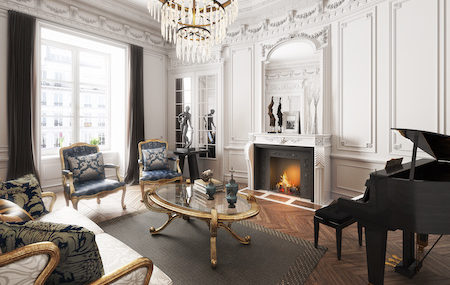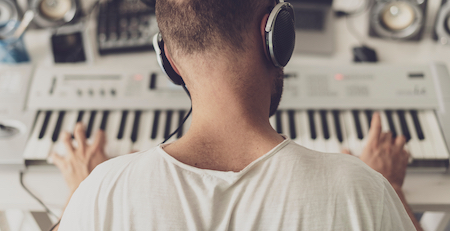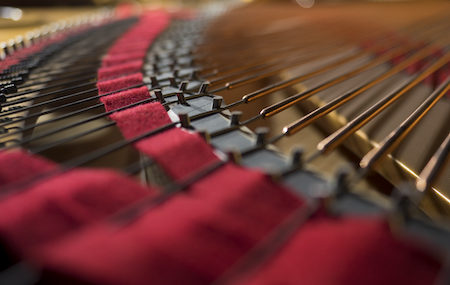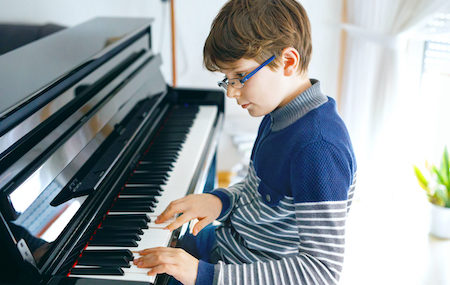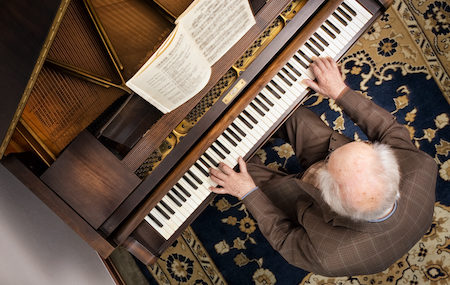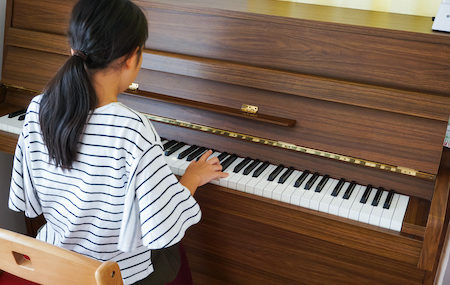Have you decided to bring a piano into your home? Congratulations! It’s a decision that promises to transform your living space into a haven of melody and grace.
But before you dive headfirst into the world of keys and chords, let’s talk about harmonizing your new or used piano with your home decor. After all, a piano isn’t just a musical instrument; it’s a statement piece that can seamlessly blend with the aesthetics of your living space.
Don’t just push it into a corner. Let it be the star of the show!
Understanding Your Style
Before you buy a piano, take a good look around your home. What’s the prevailing style? Is it sleek and modern, or perhaps cozy and traditional? Understanding your existing decor is crucial to choosing a piano that complements rather than clashes.
For a contemporary vibe, consider a grand piano with clean lines and a polished finish. Picture it nestled against a backdrop of minimalist furniture and neutral tones.
Or maybe your home exudes a vintage charm. An ornate upright piano with intricate detailing might be the perfect addition.
If you haven’t shopped for pianos before, you may be surprised at just how different they can be. Let your personal style lead the way. The goal is to create a visual symphony where every piece of furniture plays in harmony.
Color Coordination
Colors have the power to set the mood of a room, and your piano should be no exception. If your decor palette is on the warmer side, think about a rich mahogany or cherry wood finish. These tones can add a touch of elegance and warmth to your space.
If your decor leans towards cooler shades, a sleek black or white piano could be the ideal choice, imparting a modern and sophisticated feel.
Don’t be afraid to experiment with contrast either! A bold red piano can become a striking focal point in a room dominated by neutral tones. Remember, it’s all about finding that perfect balance – the sweet spot where your piano becomes an integral part of the color narrative.
(And yes, pianos come in all sorts of colors. You CAN find one that matches your personality and style!)
Size Matters
While a grand piano might be the dream, practicality plays a role too. Consider the dimensions of your room before making a purchase. A large piano in a small space can overwhelm, while a smaller upright or baby grand can fit snugly into cozier corners. It’s not just about the piano; it’s about the overall composition of your living space.
Accessorize with Purpose
Your piano doesn’t live in isolation; it’s part of a larger ensemble. Consider accessorizing around it with purpose.
A strategically placed rug can define the piano area, while framed artwork or family photos above the piano can tie the room together.
Think of your piano as the lead singer and the decor as the supporting band – each element contributes to the overall harmony.
Let the Music Play and the Decor Sing
In the end, the goal is to create an environment where the music seamlessly intertwines with the aesthetics of your home. Whether you opt for a sleek modern look or a more classic feel, your piano should be an extension of your style, not an afterthought.
Whether you have thoughts on what piano to purchase, or you’re just in the beginning stages, we can help you navigate what’s available and settle in on the perfect piano to suit your needs.
How can we help you?
